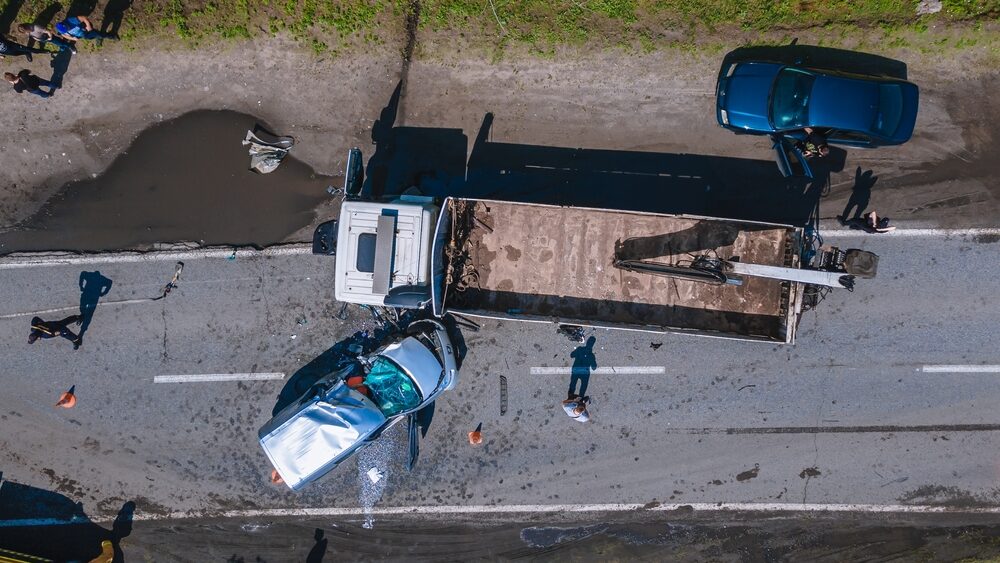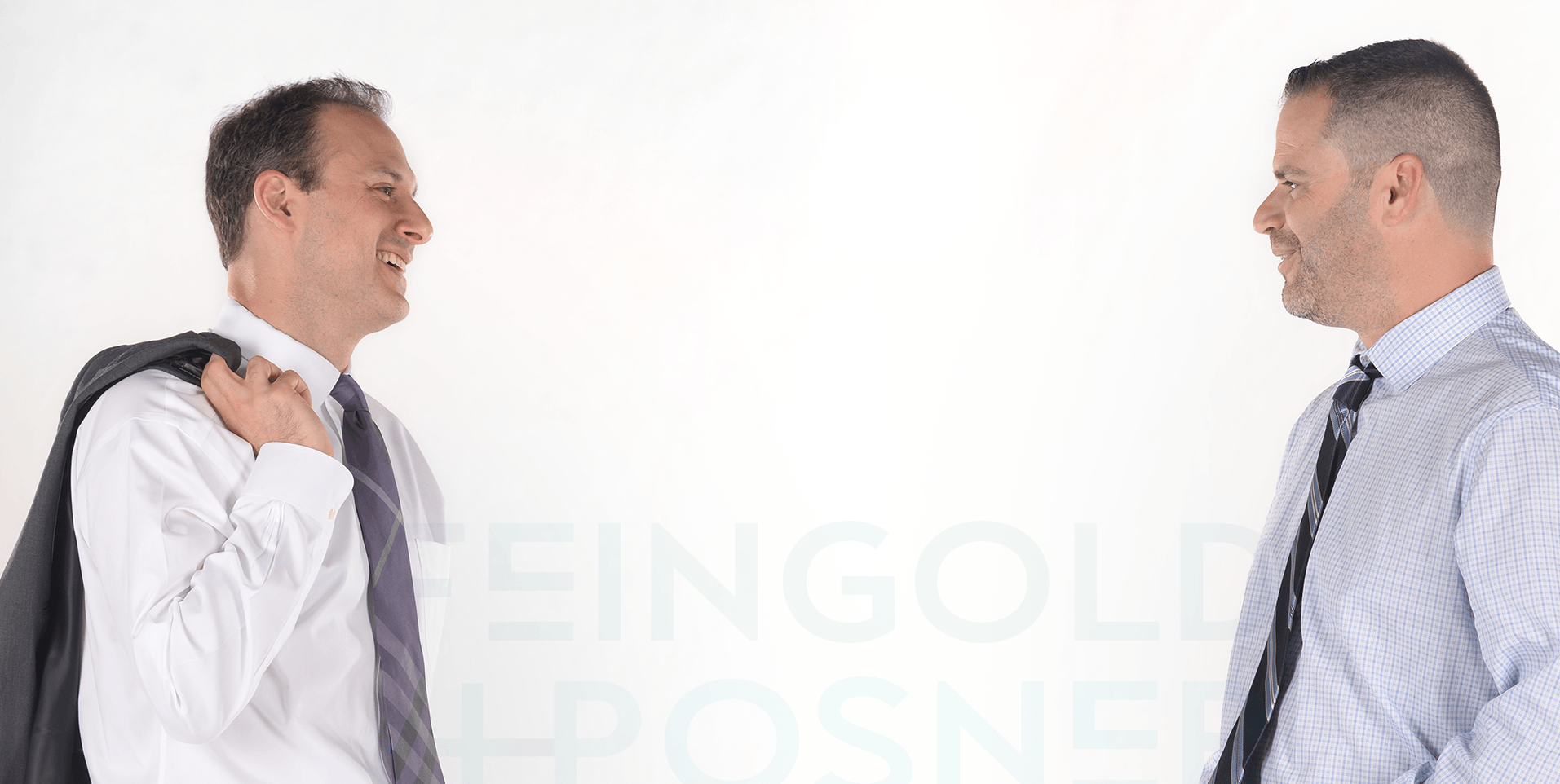Traffic Accidents Involving Commercial Vehicles: What You Need to Know
November 23, 2023

Road traffic accidents are an unfortunate reality of modern life, leading to the loss of lives, personal injuries, and property damages. Among these accidents, those involving commercial vehicles such as trucks and delivery vans have their own set of complexities. At the law firm of Feingold & Posner, P.A., we have handled numerous cases of this nature, and we’re here to shed light on these complexities for you.
How Commercial Vehicle Accidents Differ
Traffic accidents are an unfortunate consequence of modern transportation, but not all accidents are created equal. When commercial vehicles – such as large trucks, delivery vans, and buses – are involved, the dynamics, outcomes, and consequences can be drastically different from regular passenger vehicle accidents. Here’s a breakdown of how commercial vehicle accidents stand apart:
Size and Weight
- Impact Severity: Commercial vehicles, especially 18-wheelers, can weigh up to 30 times more than passenger cars. As a result, collisions can be much more catastrophic, often leading to more severe injuries or fatalities for those in smaller vehicles.
- Maneuverability Challenges: Larger vehicles are harder to maneuver quickly. This makes evasive actions challenging in sudden road situations.
Stopping Distances
- Braking Time: Due to their massive size and weight, commercial vehicles have longer stopping distances. This means they require a greater length of road to come to a complete halt, especially when fully loaded.
- Rear-End Collisions: The extended stopping distances can result in more frequent and severe rear-end collisions if other vehicles fail to account for a truck’s reduced braking capability.
Blind Spots
- Larger No-Zones: Commercial vehicles have more extensive blind spots on all four sides. These “no-zones” are areas where the driver can’t see other vehicles, increasing the potential for lane change accidents or merging collisions.
Driver Fatigue and Schedules
- Extended Hours: Commercial drivers often face tight schedules, leading them to drive for extended periods. While there are regulations like the Hours of Service set by the Federal Motor Carrier Safety Administration (FMCSA), driver fatigue is still a significant concern.
- Pressure to Meet Deadlines: Sometimes, the pressure to meet delivery or pickup deadlines can lead to speeding or skipping necessary breaks.
Cargo-Related Issues
- Shifting Loads: Improperly secured cargo can shift during transit, affecting the vehicle’s stability and possibly causing it to tip or roll over.
- Hazardous Materials: Some trucks carry hazardous materials. Accidents involving these vehicles can lead to fires, explosions, or toxic spills, escalating the level of danger for everyone nearby.
Regulations and Oversight
- Strict Guidelines: Commercial vehicles are subject to a myriad of federal regulations concerning their maintenance, operation, and the qualifications of the drivers. Breaches of these regulations can play a role in accidents.
- Documentation: Commercial drivers are required to maintain logs and undergo regular inspections, adding another layer of complexity when investigating the causes of accidents.
Liability Complexity
- Multiple Potential Parties: Determining fault in commercial vehicle accidents can be more complex. Liability might not only involve the driver but also the company they work for, the vehicle’s manufacturer, or the entity responsible for loading the truck.
Insurance Matters
- Higher Stakes: Commercial vehicles often carry much larger insurance policies compared to personal vehicles, given the potential for significant damage and injury. This can lead to more intense and prolonged legal battles as insurers may fight harder to minimize payouts.
Understanding Liability
Commercial vehicle accidents, such as those involving trucks, buses, and delivery vans, have an inherent complexity. This complexity arises not just due to the size and nature of the vehicles but also because of the multifaceted layers of responsibility surrounding the operation, maintenance, and control of these vehicles. One of the primary questions that surfaces following such accidents is, “Who is liable?”
Here’s an in-depth look into the intricacies of determining liability in accidents involving commercial vehicles:
The Commercial Driver
The actions of the driver at the time of the accident are the first point of scrutiny. Factors that can pin liability on the driver include:
- Impaired Driving: If the driver was under the influence of alcohol or drugs.
- Fatigue: Regulations limit the number of hours a commercial driver can be on the road. If they exceed this or if logbooks show discrepancies, it could indicate fatigue.
- Traffic Violations: Speeding, reckless driving, aggressive driving, or other violations can make the driver directly responsible.
- Training: Drivers should undergo proper training. An untrained or inadequately trained driver can be considered negligent.
The Commercial Vehicle Company or Owner
The company owning or leasing the vehicle can be held liable under various circumstances:
- Negligent Hiring: If the company hired a driver with a poor driving record or failed to verify the credentials properly.
- Forced Schedules: Pushing drivers to meet unrealistic deadlines, leading to fatigue or speeding.
- Improper Maintenance: If the vehicle malfunctions due to the company’s failure to maintain it, resulting in an accident.
Cargo Loaders and Packers
Improperly loaded cargo can shift, causing a truck to become unstable or even to tip over. If an accident occurs due to such instability:
- Loading Companies: The entities responsible for loading the truck can be held liable if the cargo was improperly placed, secured, or was overloaded.
Vehicle or Parts Manufacturer
In some instances, a vehicle or one of its components may have a design or manufacturing flaw that leads to an accident:
- Product Liability: If it can be proven that a faulty part or flawed vehicle design led to the accident, the manufacturer could be held responsible.
Third Parties
There are scenarios where neither the commercial vehicle driver nor the company is at fault:
- External Factors: Another vehicle’s driver, pedestrians, or external road factors, like poor signage, can be the reason behind the accident.
Government Entities
Public entities responsible for road maintenance, design, and infrastructure can be held accountable if:
- Poor Road Conditions: Potholes, lack of signage, or faulty traffic lights lead to the accident.
- Flawed Infrastructure Design: Issues like blind turns or improper merging lanes can lead to accidents.
Contact an Experienced Truck Accident Lawyer at Feingold & Posner, P.A. for a Free Consultation About Your Case Today
Traffic accidents involving commercial vehicles are intricate, demanding comprehensive investigation and expertise to ensure that victims receive the justice they deserve. With the many potential liable parties and unique factors at play, victims need experienced legal representation to navigate these challenges.
If you or a loved one has been involved in an accident with a commercial vehicle, don’t navigate this complex process alone. At Feingold & Posner, P.A., we specialize in such cases, bringing our vast experience and determination to every client. Contact us today for a consultation. Your rights and well-being are paramount, and we’re here to ensure they’re protected.

★
★
★
★
★
“These lawyers are not only very efficient, but caring as well. I would not hesitate to refer them to anyone.”
MATTHEW T. / FORMER CLIENT



